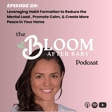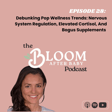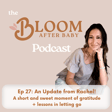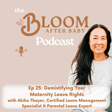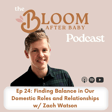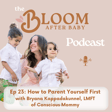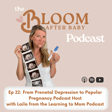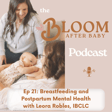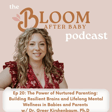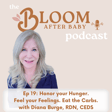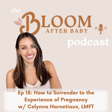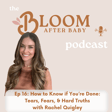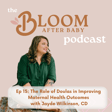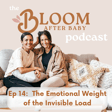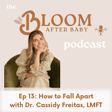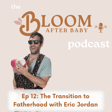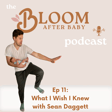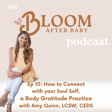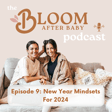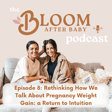
17. Lessons in Momistry: Dear Dr. Jen, Am I Losing My Mind?, with Jen & Rachel
Class is in session! Don't worry, we'll keep it brief, and there are no rules in Dr. Jen's class. Come as you are, bring your snacks, and leave if you want to.
We all talk about hormones and "mom brain" like we're experts. But today, we're actually going to hear from an expert, our very own Dr. Jen Jordan, MD.
In this episode you’ll learn:
- What hormones are, and why it's important that you understand them and their physical processes in your body.
- What role key hormones play in the perinatal period (estrogen/progesterone, oxytocin, cortisol).
- How these hormones interact with chemical neurotransmitters to influence your mood, emotions, and anxiety.
xoxo + PERMISSION TO DITCH BOUNCE-BACK CULTURE ,
Dr. Jen and Rachel
Dr Jen's Free Guide to Understanding Hormones and Mood in Pregnancy and Postpartum
Key Hormone Overview on our @bloomafterbaby page
Join our email list so we can keep in touch! - no spam and we won't blow up your inbox, we pinky promise.
If you enjoyed this episode and appreciate what we share here, please rate and review the show in your favorite podcast app! And come find us on Instagram @bloomafterbaby!
You can learn more about Rachel's California-based group therapy practice and how you can work with her at www.racheldaggettlmft.com or on instagram @rachelscouch
*Please note that this podcast is intended for educational purposes only, and is not a substitute for seeking individualized care from a mental health or medical professional*
Stay Tuned for more to come from Rachel Daggett and Dr Jen Jordan on all things motherhood and mental health - real mom experiences and insights from a licensed psychotherapist and medical doctor.
Learn more about us and access all of our courses, services, and free resources at bloomafterbaby.com
Pregnancy tips Postpartum wellness Prenatal care New motherhood Postpartum recovery Maternal health Pregnancy journey Expectant mothers Postpartum support Motherhood experience Parenting advice Family dynamics Parenting tips Raising children Family well-being Parenting challenges Family relationships Parenting insights Mental health for mothers Emotional well-being Coping with motherhood Maternal mental health Self-care for moms Stress management Emotional resilience Conversations with experts Interviews with mothers Real-life parenting stories Expert advice for moms Support for new mothers Insights on motherhood Informative parenting discussions Working moms Health at Every Size Intuitive Eating Mindfulness Best Podcast Empowering mothers Couples therapy Psychotherapy Breastfeeding tips Sleep during pregnancy Postpartum nutrition Marriage and Family Marriage after baby Balancing work and motherhood Pregnancy self-care Healthy pregnancy habits Relationships
